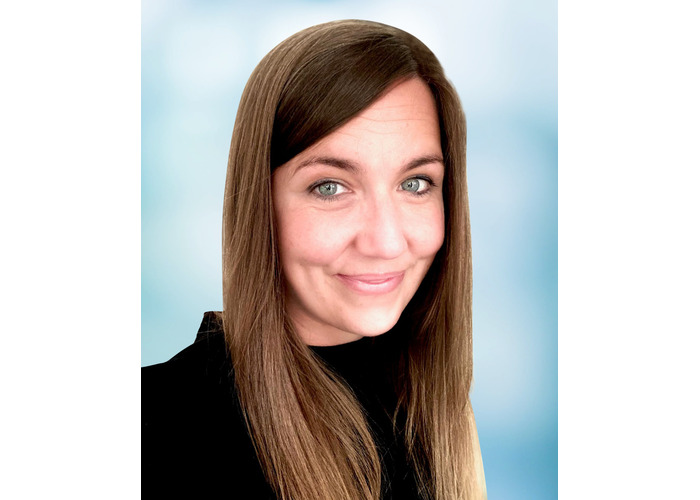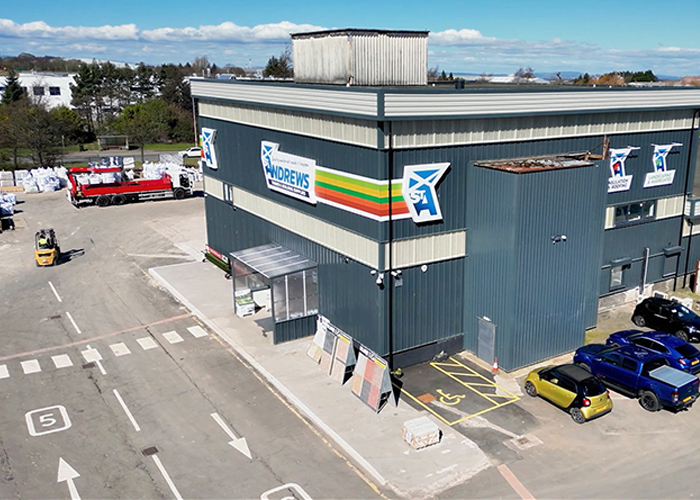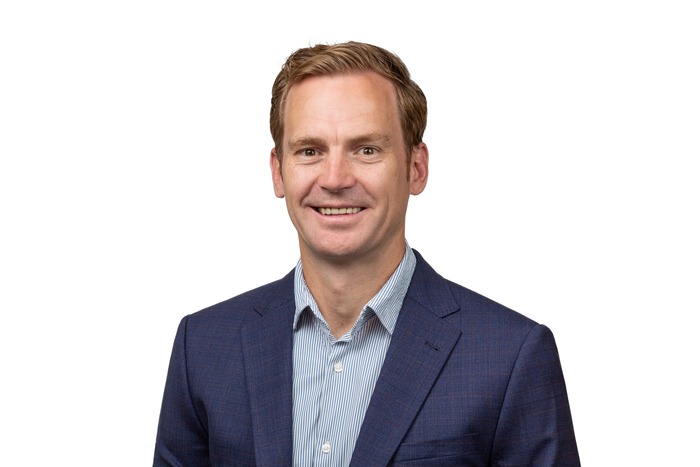If you are interested in sponsoring the Founder Series please email founders@sbnn.co.uk
Caroline Barelle took the brave step of jumping from being a research scientist to a CEO with the spin out of Elasmogen from Aberdeen University in 2016. We caught up with Caroline and asked her about the company and the journey so far as the company reaches a turnover of £1.2m.
What does your company do?
We are at the beginning of that long journey a new medicine takes to reach the patient – in essence, we design and develop novel drugs. The type of drugs we work on are antibody-like, we call these soloMERs.
Antibody based drugs currently dominate the market and are changing the lives of patients. However, with any technology there is a learning, refining and improvement process which is where Elasmogen sits – we are developing the next generation of biologic drugs to improve clinical outcomes. Our core products are sight saving therapeutics but we have also expanded into cancer therapies and gut disease.
What do you do there / what is your role?
I am CEO, which, in a small biotech pretty much means playing a role in all aspects of the company from securing investment and making strategic decisions about the direction of the business to overseeing the science programs, hiring new staff, business development, keeping an eye on the finances to making the coffee in the morning for the team.
[adbutler zone_id=’297765′]
What is your background?
Many, many years in life sciences from my initial degree in biochemistry to a PhD then a shift from academia into the commercial world of science just over ten years ago. Starting in a small antibody discovery biotech company and then becoming a team leader in large pharma. As I was going through the process of founding this company, I was successful in securing an RSE Enterprise Fellowship which was a great help to me in addition to completing an MBA (part-time) at Robert Gordon’s University.
If you started the company, what was the aha moment that led to the company founding?
Not so much an aha moment as an oh oh one. I was a team leader for Pfizer here in Aberdeen with a team of fantastic scientists working on small antibody-like molecules (soloMERs) that formed part of Global Biotherapeutic Technologies.
We had all been part of Wyeth prior to this and had all been engulfed by Pfizer as part of the acquisition deal in 2011. When Pfizer announced its closure of the R and D site in Sandwich, Kent we suspected it would not be long before they looked north beyond the border which they inevitably did.
However as the saying goes when one door closes……………..My key to opening the next door was that none of the IP surrounding this soloMER technology had been assigned to Pfizer during this period and as such, the University still had full ownership. It really was the positive and committed actions of the University to reclaim this asset portfolio, incredible support from Scottish Enterprise and a lot of work by my co-founder and myself that provided the foundation for a new company spin-out.
Why did you launch the company (if appropriate)?
In the words of Primo Levi “if not now when?”. It was simply a perfect storm of timing for me as someone who had always been passionate about drug discovery and had experienced life sciences through the lens of academia, biotech and big pharma but had never started my own biotech company. So when the opportunity arose, I embraced it. The exit of Pfizer also left a team of well-qualified, exceptional scientists who wanted to remain in the area giving me that extra drive to make this happen. Finally, from a more personal level, my daughters were grown up and had begun moving upwards and onwards in their own lives as incredible individuals, thus I had a little more time on my hands!
Where did you get assistance when you started?
I was incredibly fortunate to have support right from the start from the University and also Scottish Enterprise. My co-founder, Andy Porter who had first-hand experience of spinning out a biotech company and also the team who had remained in Aberdeen post-Pfizer. During that pre-spin period I had the wealth of support and expertise that comes hand-in-hand from the RSE fellowship which gave me the perfect environment and time to develop ideas, understand the process and to pen the business model.
Give us a brief history of the growth of the company
It took us a year after the exit of Pfizer to secure funding from both SE and the Biotechnology and Biological Sciences Research Council (BBSRC) (December 2012) which enabled us to pull the team together, re-initiate the drug programs and importantly bolster the IP portfolio. During this time, we succeeded in sealing a deal with Almac Discovery to develop cancer drugs and also Merck to deliver new reagents to support their downstream manufacturing process. Both these were important milestones that helped validate the technology and critically the team. We then spun the company out in February 2016 on the back of a convertible loan from SIB and have continued to grow and succeed in securing additional pharma deals including Amgen all of which add value to the company and the technology.
Have you taken any external funding? If so from who and when?
Biotech is an unusual business, as it does not follow the rules when it comes to making something that is sold for profit, re-investing the capital into the company and creating growth. Our business model is very much driven towards therapeutic drug discovery which requires substantial investment to take a candidate through to the clinic. To achieve this we have sought external VC investment as well as grant and research collaboration funding. SIB initially invested at the point of spinning out the company and since then we are delighted that DeepBridge Capital realized the potential of the company and invested an SEIS round in December 2016. During this time we were also successful in securing a feasibility grant from Innovate UK (April 2016) in collaboration with Queen’s University Belfast to develop novel targeted nanoparticle based chemotherapy, a further Innovate Biomedical Catalyst Grant (Feb 2017) to progress our pipeline of sight-saving ocular drugs and the research collaboration with Amgen. We are in the process of securing a further round of investment, which will be announced soon in addition to further grant funding.
So what does it look like now with regard to staff and turnover?
We currently employ 9 people (7 scientists, an Operations Manager and myself) plus our executive Chairman, CTO and BD Director on a consultancy basis. The science team has expanded and contracted as people find new opportunities and move for personal reasons however the core team has remained the same from the start.
What’s the difference between when you started and now in your marketplace?
Innovation is at the heart of biologic drug development and therefore change is normal and good. It is however tough as a small biotech to retain that differentiation factor given the limited resources so we’ve adopted a model that supports collaboration in different disease areas such as inflammatory gut disease, cancer and higher risk disruptive technologies whilst driving our core ocular R and D pipeline forward. As it takes on average $1 billion to get one drug to the market (not including the cost of all those that fail), the big pharma model is very fluid and they tend to cycle between different approaches. Early stage R and D is incredibly expensive and so there has been an expansion in external scouting to look for the next best thing coming through the smaller biotechs – securing an exclusive early stage research collaboration de-risks the opportunity for pharma and enables them to spread their bets. Having said that there has been a steady increase in acquisitions and indeed mergers between the bigger players.
What are your goals for your business?
My vision is to build and grow the company and see our first product enter clinical trials followed by a robust pipeline of next stage products.
What are your biggest current challenges?
Without question the biggest challenge is to secure investment to take our products through to the clinic. We require substantial funding to achieve this and we have been looking to European, Asian and US investors to secure this cash. It is an incredibly competitive and changing landscape which only adds to this challenge.
What has been the biggest challenge so far?
Balancing the possibilities with the resources. We have to stay focused and move forward with our core R and D but given the potential of the technology to deliver in multiple different areas it is all too easy to become distracted and to become spread too thinly. The key is to prioritise, know when to stop and when to persevere and also to be resource smart which is where the collaborations come in.
What do you do outside work?
Alongside my husband, Alex, I have built up a property portfolio in Aberdeen. I am also very keen on art, particularly contemporary Scottish artists. I recently completed a course at Grays School of Art although I would never claim to be particularly gifted; it is a great past time. I am also a regular at the Aberdeen Sports Village attending various exercise classes and more recently have got into cycling, essentially trying to keep up with my husband…….and failing.
What do you know now that you wished you had known earlier?
That at the start of this process I should not have waited for permission but I should have bashed on and worried about the consequences afterwards. Part of this was a personal one, given I had never started a company before and I was treading carefully however as time is the most precious thing we all have, you have to take charge and make things happen. All said and done, what’s the worst that can happen?
What’s the secret to good leadership?
I’ve always adopted the approach that in a small biotech you need to be honest and transparent as the whole team is ultimately working towards a common goal – that being the success of the company and you need to bring everyone on that journey with you. The culture is also critically important. I have been incredibly fortunate as I work alongside fantastic people who collectively make work a great place to be. We all work hard but my goodness, we also have a lot of fun along the way.
Where do you see the company in five years?
With at least one approved drug and three products in the clinic with a robust pipeline of candidates coming through the discovery path. I would like to have trebled the size of the science team and have secured multiple commercial deals with a number of pharma companies in other therapeutic areas.
How can the Scottish startup/entrepreneur landscape be improved to help more businesses start up and grow?
Securing substantial investment for therapeutic companies in Scotland remains hugely challenging particularly funding that gap between pre-clinical to clinical. Regions that have built clusters such as London, Oxford and Cambridge have attracted massive capital investment resulting in accelerated company growth. This model attracts not only the best talent but the infrastructure and the “critical mass” to enhance success thereby fueling further investment. Historically, Aberdeen has been a centre for excellence in biologic discovery and there exists a vibrant community of spin out and start up biotechs however we struggle to promote the region as the place to be. Hopefully with the advent of new initiatives such as Opportunity North East (ONE) this will bring change. This ambitious venture is being spearheaded by Sir Ian Wood in combination with support from the Scottish Government to build a new incubator facility which will provide a centralised hub for new and young biotechs providing access not only to state-of-the-art equipment and facilities but to expertise and support to help them build their companies.
Caroline Barelle is CEO/CSO of Elasmogen
If you would like to take part in the Founder Series please email founders@sbnn.co.uk
If you are interested in sponsoring the Founder Series please also email founders@sbnn.co.uk




